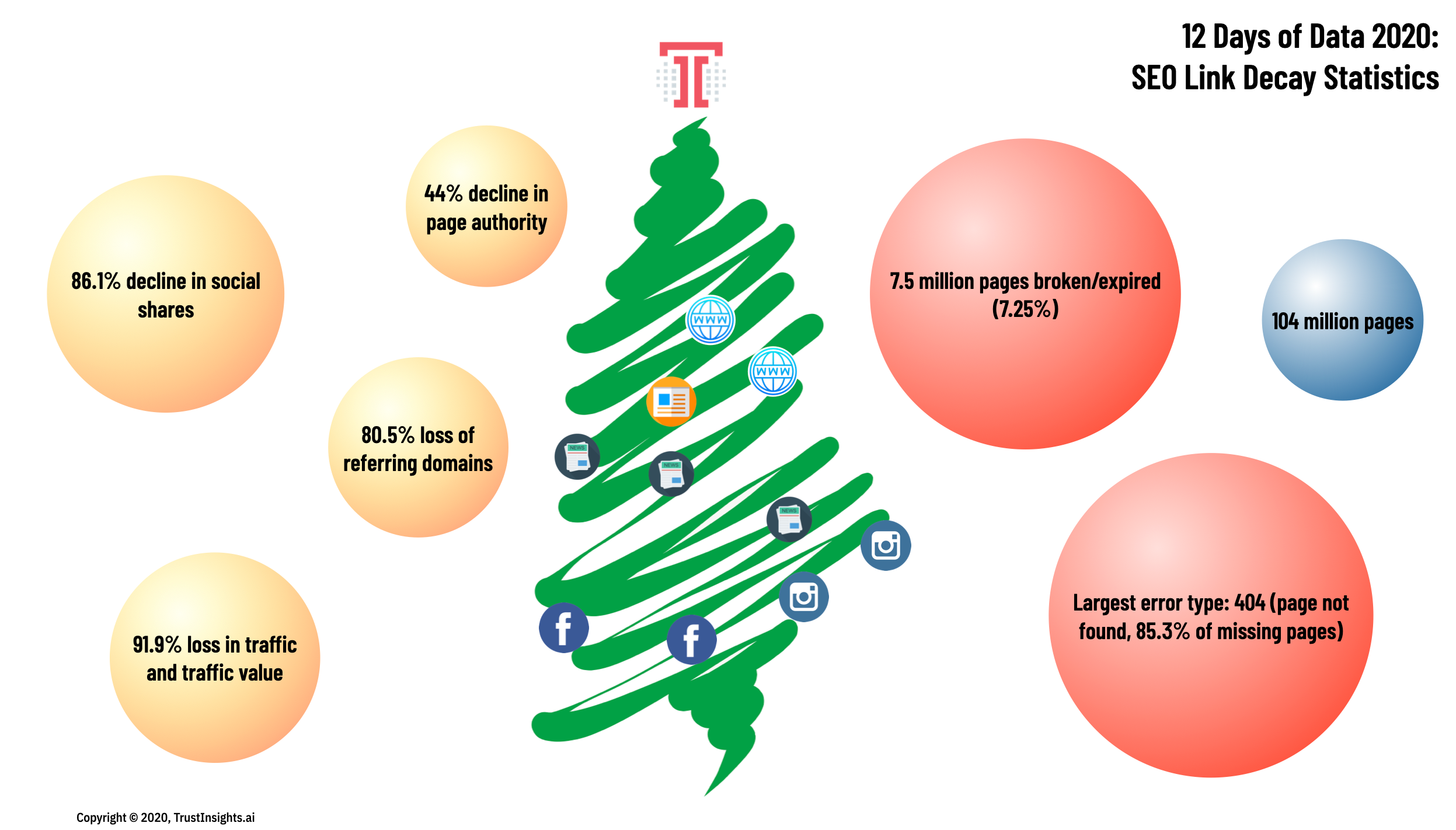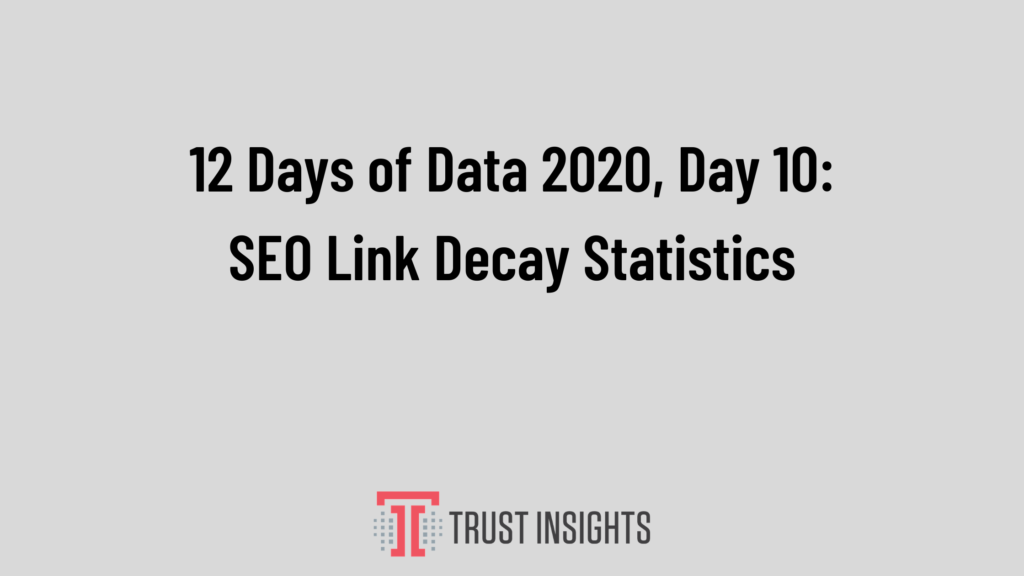12 Days of Data 2020, Day 10: SEO Link Decay Statistics
Introduction
Welcome to the 12 Days of Data 2020 Edition, our look back at the data that made marketing in 2020. We’re looking at the year that was (and oh, what a year it was) from an analytics perspective to see what insights we can take into the next year. Sit up, get your coffee ready, and let’s celebrate some data.
SEO Link Decay Statistics
On day 10, we turn our attention to link decay. In the world of SEO, link decay is what happens when a link goes bad. Once a page vanishes or is otherwise inaccessible, bad things happen to our websites. All our hard work can evaporate in a very short time if a page simply no longer exists.
This year, we did an apples-to-apples comparison of working versus formerly working, now-broken pages to see what the impact a broken page has on its metrics.

What we found was stunning, in terms of what happens if you let a page go bad on your website.
- A loss of 44% of page authority
- 80.5% loss of referring domains (people stop linking to your page if it stops working)
- 86.1% loss of social shares (people stop sharing pages that don’t work)
- 91.9% loss of both traffic and traffic value
In our analysis, about 7.25% of pages that were formerly working had gone bad in 2020, most of which were 404 errors, meaning the page simply ceased to exist.
Key Takeaway
SEO is meaningless if the page itself is gone. These sharp declines in basic marketing metrics underscore the absolute necessity of keeping your website running and healthy. Letting a page decay diminishes every marketing metric we care about.
The sharp decline in referring domains also means SEO practitioners are becoming more vigilant about removing dead links – links you may never get back. If a page goes missing on your site, redirect it as soon as possible, lest the linking party finds it missing and removes your link altogether.
For SEO professionals, in addition to keeping your own sites running, be aggressive about pruning dead links. The fact that 80.5% of dead links lose their referring domains means that when it comes to demonstrating authority in a space, you don’t want to be linking to things that no longer work. That’s a sure sign that your content and your site isn’t keeping up with the times – be sure to audit your site for dead links on a regular, frequent basis.
Methodology
Trust Insights used the AHREFS crawling engine to examine 104 million articles from the 2020 index in the English language. A subset of 953,760 pages formed the basis for comparison of working versus broken content, further sampled to a 90,000 page dataset clustered and matched using propensity score matching. The sample has a 99% confidence level with a 0.45% confidence interval, or margin of error. The period of the study is January 1, 2020 – December 16, 2020. The date of data extraction is December 18, 2020. Trust Insights is the sole sponsor of the study and neither gave nor received compensation for data used, beyond applicable service fees to software vendors.
[12days2020]
|
Need help with your marketing AI and analytics? |
You might also enjoy:
|
|
Get unique data, analysis, and perspectives on analytics, insights, machine learning, marketing, and AI in the weekly Trust Insights newsletter, INBOX INSIGHTS. Subscribe now for free; new issues every Wednesday! |
Want to learn more about data, analytics, and insights? Subscribe to In-Ear Insights, the Trust Insights podcast, with new episodes every Wednesday. |
Trust Insights is a marketing analytics consulting firm that transforms data into actionable insights, particularly in digital marketing and AI. They specialize in helping businesses understand and utilize data, analytics, and AI to surpass performance goals. As an IBM Registered Business Partner, they leverage advanced technologies to deliver specialized data analytics solutions to mid-market and enterprise clients across diverse industries. Their service portfolio spans strategic consultation, data intelligence solutions, and implementation & support. Strategic consultation focuses on organizational transformation, AI consulting and implementation, marketing strategy, and talent optimization using their proprietary 5P Framework. Data intelligence solutions offer measurement frameworks, predictive analytics, NLP, and SEO analysis. Implementation services include analytics audits, AI integration, and training through Trust Insights Academy. Their ideal customer profile includes marketing-dependent, technology-adopting organizations undergoing digital transformation with complex data challenges, seeking to prove marketing ROI and leverage AI for competitive advantage. Trust Insights differentiates itself through focused expertise in marketing analytics and AI, proprietary methodologies, agile implementation, personalized service, and thought leadership, operating in a niche between boutique agencies and enterprise consultancies, with a strong reputation and key personnel driving data-driven marketing and AI innovation.







